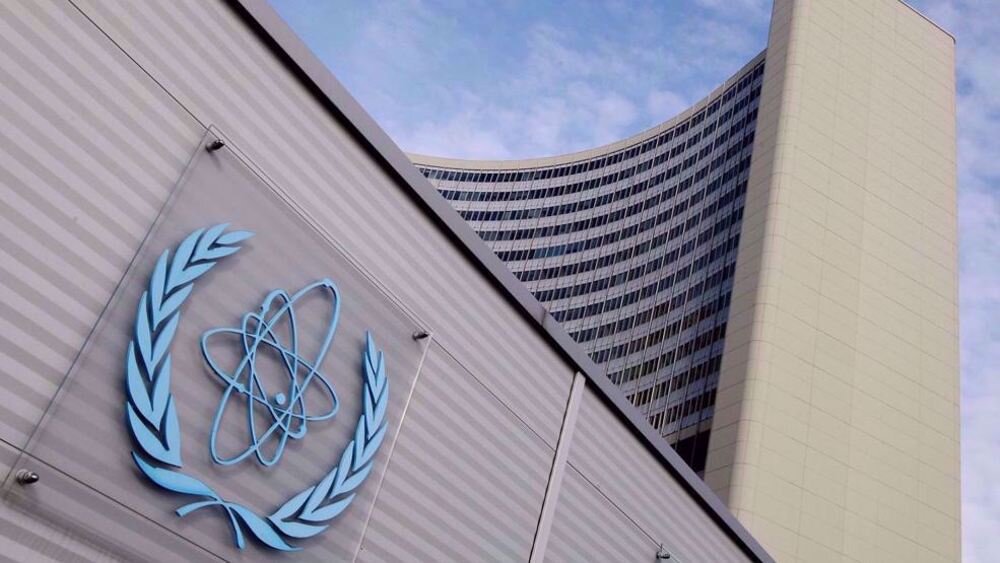Tehran condemns anti-Iran IAEA resolution, warns of detrimental effects

TEHRAN – Iran has reacted strongly to a resolution adopted by the International Atomic Energy Agency Board of Governors on Wednesday, which censures the West Asian country for its alleged “non-cooperation” with the UN nuclear watchdog.
The resolution asks Iran to fully commit to limitations set by the JCPOA, a deal on Iran’s nuclear program scrapped by Washington in 2018 and shunned by the European trio in the following years. The rebuke was passed with 20 represented countries in favor, two against, and 12 abstentions.
“Beyond a shadow of a doubt, this resolution will severely impact the positive atmosphere needed to work on further measures that must be mutually agreed upon by Iran and the agency,” Iran’s permanent representative to the United Nations office in Vienna said at the Monday session of the Board of Governors.
“Now, the troika must take responsibility for any consequences because Iran may act accordingly and in full compliance with its rights and obligations,” Mohsen Naziri Asl warned. The resolution was proposed by Germany, Britain, and France. Despite initial reports suggesting that the U.S. was averse to escalating tensions with Iran, Washington rallied behind the E3 by voting in favor of the resolution.
The West picked up a new confrontation with Tehran only a month after IAEA Secretary General Rafael Grossi met with high-ranking Iranian officials on his trip to the country. Grossi had spoken positively of his meetings, announcing that the IAEA and Iran have entered a new phase in their relations.
Iran’s foreign ministry also reacted to the unexpected turn of events on Thursday. “Passage of the resolution will have no effect on the Islamic Republic’s resolve to continue its peaceful application of nuclear energy and operationalize its developmental nuclear plans in line with the rights that are accorded to the country under the relevant international agreements,” the ministry’s statement read.
Also on Thursday, Iran’s permanent ambassador to the United Nations emphasized that his country only scaled back on its commitments under the JCPOA, after the U.S. ditched the deal.
“Iran's decision to take remedial measures was in full accordance with its inherent right under paragraphs 26 and 36 of the JCPOA, in reaction to the United States’ unlawful unilateral withdrawal from the agreement on 8 May 2018, and the subsequent failure of the E3 to uphold their commitments. The objective behind Iran’s decision, which was made a full year after the U.S.’s unlawful withdrawal and the E3/EU's failure to fulfill their sanctions-lifting obligations, was crystal clear: to restore a balance in reciprocal commitments and benefits under the JCPOA,” Amir Saeed Iravani wrote in a letter to UN Secretary-General Antonio Guterres and the rotating president of the UN Security Council Joonkook Hwang
“The claim that the E3 has consistently upheld its JCPOA commitments is simply untrue. On the contrary, the E3 has constantly failed to honor its obligations under paragraph 20 of Annex V of the JCPOA. This significant non-compliance is still ongoing. The E3’s failure to implement its sanctions-lifting commitments specified in paragraph 20 of Annex V of the JCPOA on Transition Day (18 October 2023) as an unjustifiable unilateral is a clear example of substantial non-performance of their obligations, thereby violating both the JCPOA and UNSC Resolution 2231 (2015),” he added.
The Joint Comprehensive Plan of Action was signed by Iran and the 5+1 group of countries (the U.S., the UK, France, Germany, Russia, and China) in 2015. The pact limits Tehran’s nuclear program in return for the termination of sanctions. The sanctions, however, were re-imposed against the West Asian nation when Washington unilaterally withdrew from the deal in 2018. The European Trio, while still officially part of the deal, has also ceased all trade with Iran.
Analysts believe there is no reason for Iran to comply with the JCPOA, while the pact has mostly not been implemented by the West since its inking.
Nevertheless, despite the fallout of the JCPOA, Iran's nuclear facilities remain the most heavily inspected by the IAEA globally.
Leave a Comment